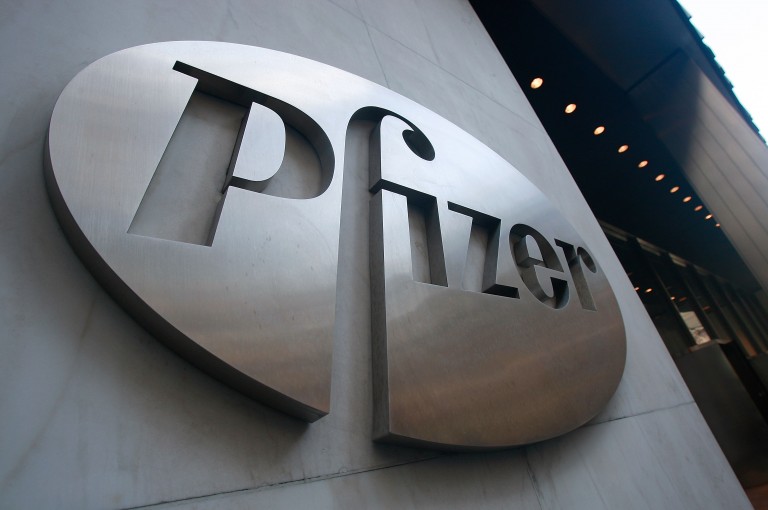
Pfizer Inc. (NYSE:PFE) was a mover in the healthcare space on Wednesday. The company announced some data from a trial that it was running in collaboration with Merck & Co., Inc. (NYSE:MRK) and, on the back of the news, took something of an after-hours hit in around the magnitude of a few percentage points.
Merck was slightly more resilient, trading pretty much flat on the news, but no doubt shareholders are disappointed nonetheless and we may see some degree of depreciation as we head into the close of this week.
So what happened?
The data that Pfizer just put out relates to a trial called JAVELIN. JAVELIN was set up to investigate the potential efficacy of an asset called avelumab for the treatment of gastric cancer in the third-line setting.
The current standard of care treatment for gastric cancer is surgical resection (which is incredibly difficult and very invasive) coupled with chemotherapy and radiation therapy. It’s well-known that both of these latter two treatments are fraught with tolerability issues and these tolerability issues are rooted in the inability of chemotherapy agents (the cancer killing drugs) to distinguish between healthy cells and diseased cells. This indistinguishability translates to a large number of healthy cells being destroyed and, in turn, results in a broad suite of unpleasant side effects for the patient undergoing treatment.
The recent shift towards immunotherapy assets is – for the large part – an attempt to move away from these toxic chemotherapy agents and towards something more selective and – potentially – more effective at the same time. A number of companies have been successful in bringing immunotherapy assets to market and both Pfizer and Merck find themselves included in this list. In fact, the drug in question here, avelumab, is already approved as a treatment for non-small cell lung carcinoma (NSCLC) and Merkel cell carcinoma, an aggressive type of skin cancer, as well as a host of other cancer types.
Pfizer’s avelumab is what’s called a fully human monoclonal antibody and it works by binding to what’s called the programmed death-ligand 1 (PD-L1). This, in turn, inhibits the PD-L1 from binding to its receptor, programmed cell death 1 (PD-1). When PD-L1 binds to PD-1, it prevents the body from mounting an immune response to cancer cells. By binding to PD-L1, avelumab prevents the latter from binding to its receptor and, in turn, stops the cells from prohibiting an immune response towards their cancer target.
It’s a pretty neat mechanism of action but, unfortunately for this target population, it doesn’t seem to work in patients with gastric cancer – at least not in the latest stage population.
The two companies were trying to expand on this list of approved indications with the gastric cancer trial but, as per the latest data, the study failed to demonstrate superior overall survival – the primary endpoint – of avelumab treatment over chemotherapy.
Again, this is a very hard to treat population and the patients that comprised the JAVELIN trial were very late stage patients, meaning markets expected avelumab to have a tough time bringing about any degree of oncologic regression across the dosing period.
There is a secondary study (which is also a phase 3 investigation and is again looking at patients with gastric cancer) called JAVELIN Gastric 100 and this one is evaluating avelumab in the first-line switch maintenance setting.
In other words, this secondary trial likely has an increased probability of success given the stage of the cancer in question and that’s why we are seeing something of a muted response to the latest news – markets expected this trial to be tough and placed more weight on the first-line study.
With that said, however, it’s still something of a disappointment, especially given that this drug is an already approved asset in a number of other very hard to treat forms of this disease.
All eyes now turn to the JAVELIN Gastric 100 result, with the study set to complete (from a primary perspective) during the first quarter of 2019. The study won’t close out completely until 2024, but we should get some idea of efficacy long before then based on the high potential for interim results as and when these patients are dosed and subsequently measured for progression.




